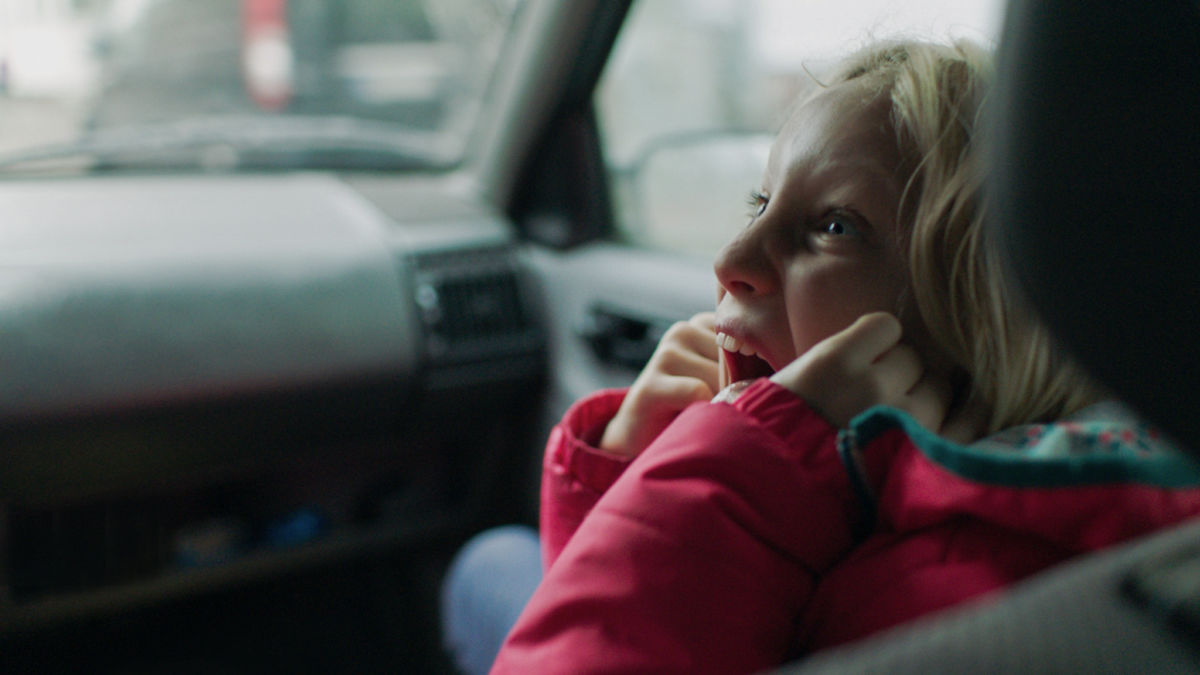Benni’s (Helena Zengel) voice is a weapon of war. Ringing through the cinema hall like an ancient battle cry, it’s the sound of someone who simply can’t be contained. Antoine Doinel, the famous delinquent from Francois Truffaut’s The 400 Blows, has nothing on this poor girl. She is a pure force of nature. Zengel’s performance is a revelation.
A Systemsprenger (system crasher) refers to someone who breaks through every mode of conventional childcare. Bouncing from care home to care home, foster family to foster family, system crashers find it near impossible to settle down. Benni is one such example. We meet her in the school playground, starting fights with anyone who comes near. She howls and howls and howls until somebody calls the police.
Her anger is a natural reaction to fear. When you have experienced trauma, every situation can be a fearful one, leading Benni to constantly lash out. One particular trigger is her face. When she was a baby diapers were stuffed in her mouth. She needs constant psychiatric care, but because she is only nine years old, she cannot be put in a closed facility. Her own mother (Lisa Hagmeister), perhaps the only woman to calm her down, is an emotional wreck and cannot deal with the strain.
https://www.youtube.com/watch?v=LDiy26bzaOo
At a loose end, the group home committee welcome any suggestion. Her school escort Micha (Albrecht Schuch) — a man tasked with making sure she goes to class on time and doesn’t hit the other students — has a novel solution, taking her out to the woods to experience the power of nature. Perhaps he holds the key to Benni’s redemption. Unfolding in a way that belies traditional storytelling, Systemsprenger is both an exhaustive cinematic ride and a deeply empathetic experience.
The chaos of Benni’s life is reflected in the film’s style. The camerawork is handheld, using shaky cam to convey a sense of deterioration. The editing cuts straight to the heat of the moment, giving us no time to relax or breathe. Every scene burns with tension, as we can never know what might set Benni off again. But this energy is also contagious, Benni’s joy in running, jumping and breaking the rules infectiously fun. She is not merely a troubled child but a rounded out and complicated character, making us want to root for her success.
But just as Benni cannot be contained by the system, the film is not interested in generic themes of redemption. The care system cannot be said to be a failure: the German social system provides help for free, using every means at its disposal to help the poor girl. This portrayal of kindness gives the film its strength. Instead of indicting a broken system, it shows us what happens when seemingly nothing can be done to help. The supporting cast are excellent, especially Gabriela Maria Schmeide, who stands out as an endlessly patient social worker. Likewise, Micha wants to do the best by her, but he has a family of his own. By getting too close to her — termed here as a “rescue fantasy” — he could actually be putting her into more danger. It’s this kind of nuance that elevates the film beyond mere misery porn and into something truly cathartic.
If the film runs on too long and feels repetitive, this is par for the course for modern German cinema, which sees how far you can take a theme until it truly breaks (Toni Erdmann is the best example). I stuck with it right till the end, and salute its brave vision and astounding central performance.
Some of the coverage you find on Cultured Vultures contains affiliate links, which provide us with small commissions based on purchases made from visiting our site.

